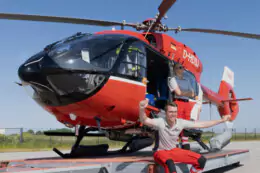Training
your life – our mission
Working in offshore air rescue requires a wide range of qualifications and a high level of training
Training Flight Operations
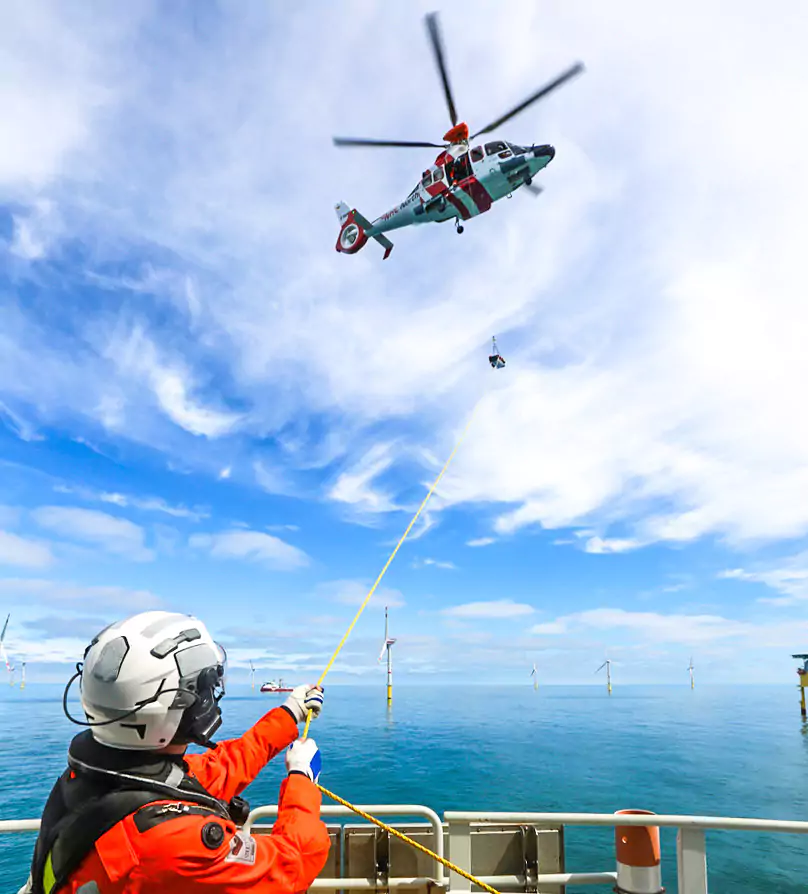
At NHC Northern Helicopter, we regularly train hoist operations, hi-line procedures, and “Special Rescue from Heights and Depths (SRHT)” at our customers’ offshore wind farms with Quality Health Safety Environment personnel (QHSE) on site, as well as on offshore structures at onshore training centers.
In addition to flying hours, our pilots regularly receive simulator training, which is offered at different training centers throughout Germany and Europe according to the respective helicopter type. Pilots accompanying the research vessel Polarstern on its expeditions also undergo survival training in the high mountains and, for example, flights with external loads.
In addition, our crews take advantage of all opportunities for constant practice, such as hoist exercises on vessels or practice units in interaction with the sea rescue cruisers and boats of the DGzRS (Deutsche Gesellschaft zur Rettung Schiffbrüchiger = German Maritime Search and Rescue Service).

Water Rescue Training
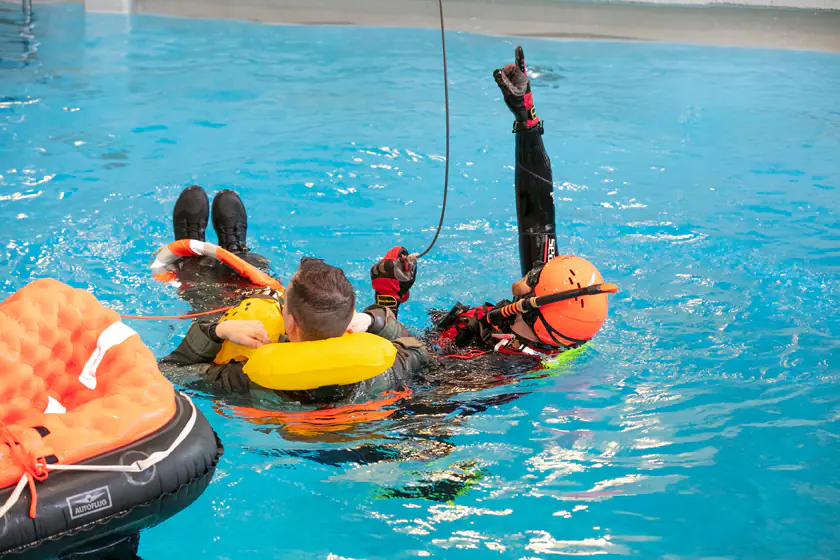
“Man overboard” is not just a phrase for vessels, as it is also necessary to rescue people from the water in offshore wind farms. Therefore, our rescue teams are trained in water rescue and train regularly, for example, with the DLRG – Deutsche Lebens-Rettungs-Gesellschaft e.V. (German Lifesaving Association), the fire departments on the coasts of the North Sea and Baltic Sea or Hallig Hooge rescuers.

HUET – Helicopter Underwater Escape Training
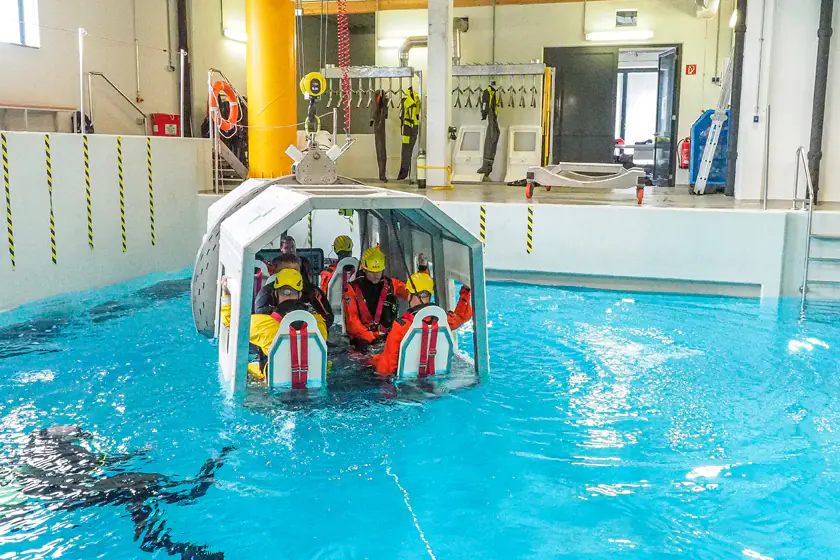
For their own safety during flights over water, all crew members complete special training for self-rescue from the helicopter. The Helicopter Underwater Escape Training (HUET) takes place at a certified training center. The HUET is also part of our physicians’ and paramedics’ assessments.

CRM – Crew Resource Management Training
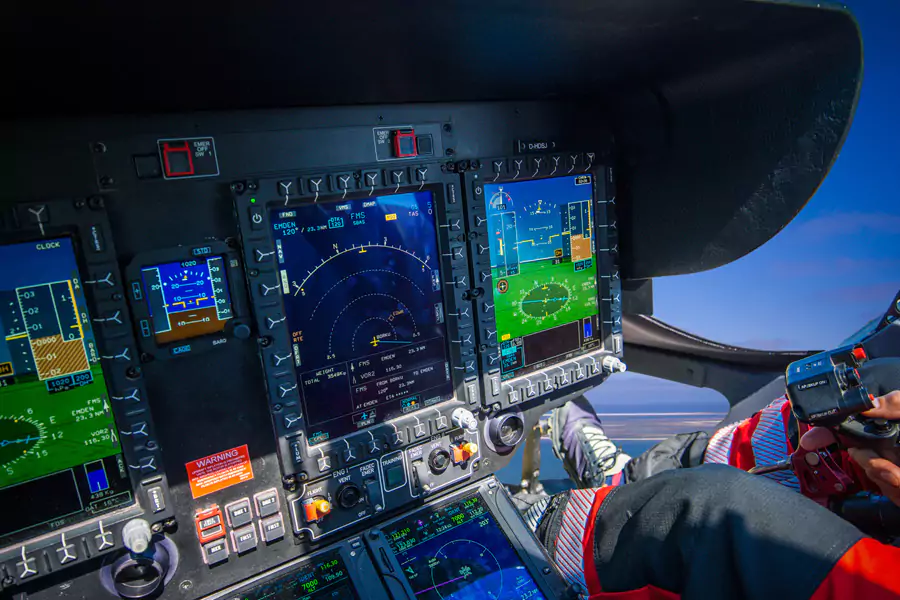
No two assignments are the same. Routines are the exception rather than the rule in our operations. Mastering unforeseen situations is therefore part of the daily business for our rescue helicopter crews. In aviation, as in other high-security areas, our actions must be based on facts and controlled behavior. What is required is far more than a technical understanding of the machine and its procedures. Clear and open communication, cooperative teamwork and keeping an eye on each other are basic requirements for our own safety and that of the patients on board our helicopters. Consequently, our helicopter crews, technical crew on the ground and flight operations are given the necessary skills via regular Crew Resource Management (CRM) training sessions apart from the daily routine. After all, safety is our top priority.

 +49 4921 93744-0
+49 4921 93744-0 